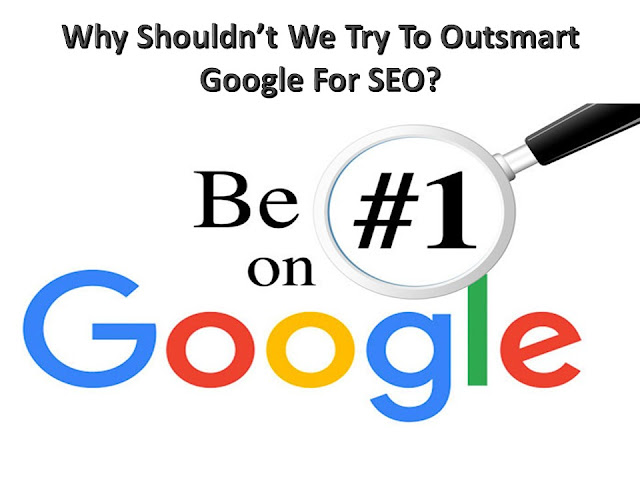Google holds 92.1% of the global market share of the search engine. It is often referred to as being in “quasi-monopoly” status. However, new search engines are emerging to try to compete, while the oldest (Bing for example), try to keep their current shares…
Should we, as a motor user or as a web professional, continue to use only him? What would be the long-term impact of Google’s current strategy on website publisher revenues and their business? What are the alternatives?
New search engines that want to compete with the old ones:-
More and more companies are competing with Google. To stand out from the giant Mountain View, they try to offer separate services to find their place on browsers Internet users.
Why not go Google?
We have seen the alternatives of Google, but what would be the concrete interest for its users to try these other engines.
As an internet user
As we have seen, Bing is close enough to Google in terms of features and could be its closest equivalent.
But the two other types of engines presented play on specific concepts: the protection of personal data, and responsible navigation.
If, as an Internet user, you do not want your data to be collected for advertising purposes, or tracked down, you can try one of these engines. A few years ago, articles on Google’s location history showed those who did not know the power of data collection of its services, including via Android.
If you want to participate indirectly in social or ecological projects thanks to your research, an eco-responsible meta-motor will allow you to navigate differently and “make profitable” the advertising targeting for good causes.
They are simply means of navigating differently, regaining control of one’s research, data that one gives up and which values these small queries of everyday life.
As a website owner
With 90% market share in France, Google is the first vector of visibility for most French websites. The desire is great to benefit from this visibility and the traffic brought by the search engine, through natural and paid SEO. “Being first on Google”, which referencer has not already heard this request? Thus, most websites revolve around 50% minimum organic traffic, often 70 or 80%. But, in case of a change of algorithm causing fluctuations in positions, or penalties (algorithmic or manual), it is a huge amount of traffic, and therefore turnover for some, that may be impacted.
This is why SEOs often advise to vary the sources of traffic. Being 100% dependent on one source is very dangerous. A strategy of visibility and growth on the web should not be content with SEO and Google, but integrate:
- branding or content marketing through seo agency to acquire direct traffic;
- partnerships or getting known for links to other sites, which then bring traffic;
- a social strategy;
- the sending of newsletter and on-site commercial animation;
- Online advertising etc.
Thus, in case of a problem with the natural referencing of your site on Google, you have other vectors of traffic and sales.
In addition, there is a dangerous trend for site publishers. Google designs more and more solutions and features on its search engine, which allow it to keep users on its site.
Its Knowledge Graph (insert that often appears to the right of the results, and giving information on the research carried out, in particular on companies, public persons, foods …) for example, displays information often coming from Wikipedia. A user looking for a quick answer will not need to click on a result. This could also have a direct impact on Wikipedia, which reported seeing a drop in traffic on its site in 2013, which could be due to the appearance of Google’s Knowledge Graph.
Ditto for the “zero position”, this result at the top showing a site extract, which provides a direct response to the request. According to the query, the user does not need to go further than the search result. A real loss of traffic! In other cases, he clicks on the source to learn more, which brings more traffic to the lucky winner whose content was posted by Google. Position 0 is becoming the new goal of many ecommerce development company.
Google brings the answer directly, without sending the user to a website. For Google Job, it is a schema.org markup, added in the page code by the site owners, which makes it possible to display the job offer in the search results. Is this really to the advantage of these sites specialized in employment? Their offers will compete directly from the pages of search results, without the user comes to visit several pages of the site. On the other hand, this may mean more direct visibility for some offers. Could this bring an advantage to some sites to the detriment of competitors who would not use this markup? Or does it only benefit Google?
With Google Home, people will not even go on Google or sites, they will directly ask the information they are looking for a box, and have the answer in voice format. And website publishers in all this? Are we feeding the ogre who is going to eat us? Will Google eventually happen without websites?
Because what Google wants, Google gets it. He does not like sponsored articles too much? It penalizes blogs that have such practices. He wants to pass the web to HTTPS? It displays an alert in Google Chrome. He wants to move the web to mobile? Long live Mobile First! Be careful that your site is mobile compatible … Google evolves; sites adapt … or disappear (from its results).
Some websites are therefore trying out new formats, such as Minute Buzz, which based its strategy on Facebook content in 2016, switched to a revenue mode via sponsored content, and stopped publishing on its site. In this case, the dependence has shifted to Facebook … to see if the strategy is viable in the long run.
In conclusion
This article is not intended to make you leave Google, but simply ask the question of the trend that is emerging in the evolution of its search engine, and see if we really have no choice but to depend on its technology for our research.
The recommendation to vary the sources of traffic to your site has never been so important. The dominant position of Google may be still contested and pointed the finger; it does not seem to change for the moment. You have no choice but to adapt to its conditions and respect them (hoping that it still needs sites a few more years), vary your traffic sources, or participate in a less dominant position by testing another engine. The ideal being the three at a time!
Junaid Ali Qureshi
is a digital marketing specialist who has helped
several businesses gain traffic, outperform competition and generate profitable
leads. His current ventures include Progostech, Magentodevelopers.online.eLabelz,
Smart Leads.ae, Progos Tech and eCig




